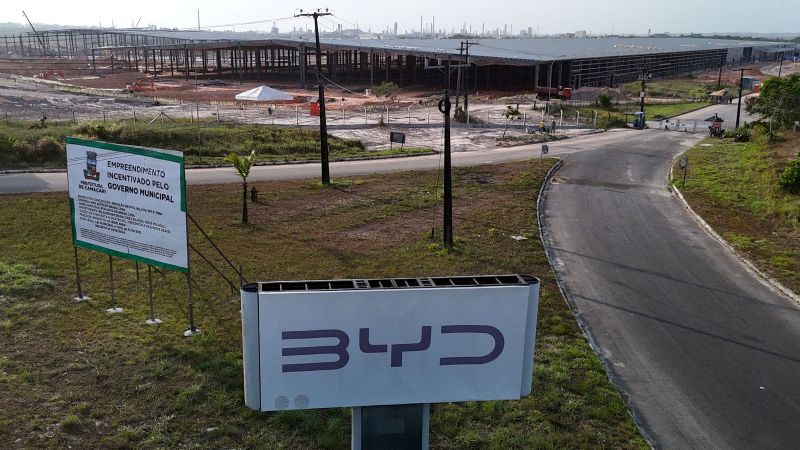On a recent Tuesday, Brazilian labor prosecutors took a significant step by filing a lawsuit against the Chinese automotive giant BYD, bringing serious allegations of human trafficking and what they termed “slavery-like conditions” concerning the labor force involved in the construction of a factory in Brazil, which is recognized as BYD’s largest market outside of its home country. This action underscores growing concerns over labor practices within global supply chains, especially in emerging markets where regulations may be less stringent.
The lawsuit filed by the prosecutors is substantial in scale, seeking damages amounting to 257 million reais, roughly equating to $45 million. This hefty figure is not only aimed at BYD but also includes two contractors engaged in the project: JinJiang and Tecmonta. The statement issued from the labor prosecutors’ office outlines the demand for comprehensive compensation for individuals who were affected by these alleged labor violations. Beyond financial reparations, the prosecutors are pushing to enforce compliance with existing labor laws and suggest imposing penalties of 50,000 reais for every regulatory violation encountered, with multipliers based on the number of workers affected.
In light of these serious allegations, BYD has responded by asserting its commitment to upholding human rights, emphasizing respect for both Brazilian labor laws and international labor standards. The company maintained that it has been actively cooperating with inquiries from labor prosecutors and has vowed to fight the lawsuit through appropriate legal channels. This response reflects an understanding of the severity of the situation and the potential reputational risks associated with labor exploitation claims.
The context behind the lawsuit dates back to December when it was revealed that a group of 220 Chinese workers, under the employment of BYD’s contractors in the Brazilian state of Bahia, were discovered enduring what prosecutors described as “slavery-like conditions.” This alarming finding highlighted issues of international human trafficking, raising red flags about the recruitment processes and working arrangements for these laborers.
Fabio Leal, the deputy labor prosecutor overseeing the investigation, recounted in an interview that negotiations began with the involved companies in late December. However, those discussions did not lead to an amicable resolution, although specific details regarding the failure of these talks remain undisclosed. He noted that the Chinese workers, who have since returned to their home country, would be eligible for any compensatory payouts resulting from the lawsuit; this places the onus on the companies in Brazil to provide proof of payment.
Moreover, Leal indicated that a settlement is still feasible, albeit necessitating the involvement of the court system to facilitate this process. His comments suggest a possible pathway to resolution that might avoid a protracted legal battle. With a robust array of evidence collected during the investigation, Leal expressed confidence about the validity of the lawsuit, indicating a strong foundation for their claims against BYD and its contractors.
This case raises significant questions about labor practices in multinational enterprises, particularly those operating in countries with diverse regulatory environments. The implications of this lawsuit extend beyond financial compensation; they also reflect broader societal concerns regarding worker rights, ethical recruitment, and accountability in the global marketplace. The outcomes could potentially influence not only the practices of BYD and its contractors but also set a precedent for other companies operating in similar contexts, emphasizing the need for transparent and humane labor practices across all sectors. As the legal proceedings unfold, they are sure to attract attention from labor rights advocates, policymakers, and global observers closely monitoring the intersection of business practices and human rights within the labor landscape.



